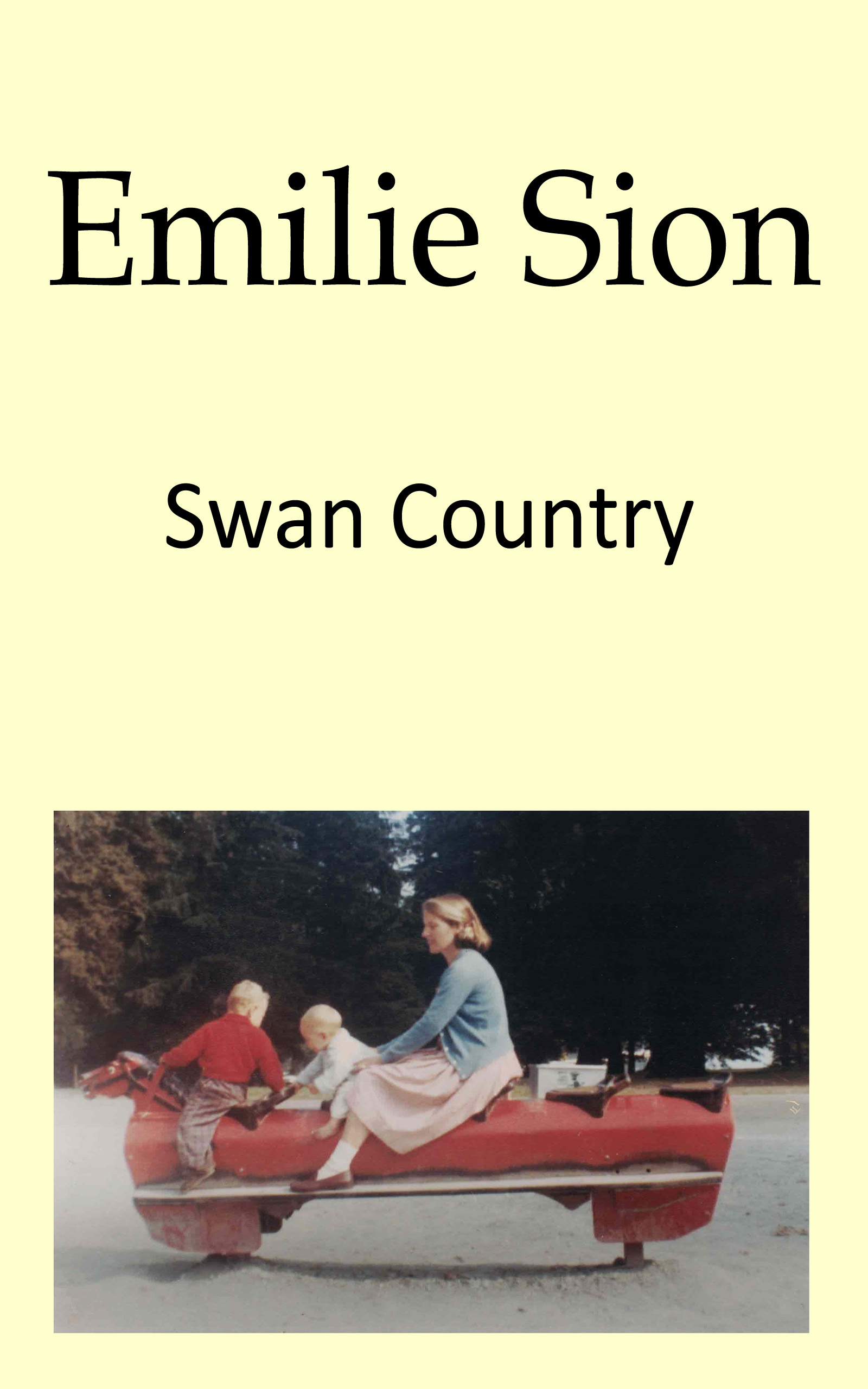|

Swan
Country
Poetry
from Emilie Sion
Emilie
Sion was born in 1927 in Kansas City, Kansas. She spent her early childhood
in Cuba where her father oversaw a sugar cane plantation owned by the
Royal Bank of Canada. After the revolution of 1933, the family moved
to Massachusetts, where her father tried unsuccessfully to continue
his agricultural career. There she went to high school and attended
Harvard University while the family lived in her grandmother's house
in Melrose. After the death of her father and grandmother, she taught
school in Milwaukee and then moved with her sisters and mother to California
where she taught school in the Bay Area. There she met her husband,
Maurice Sion, a mathematician, and together with their young family,
they moved to Vancouver, British Columbia, where she began submitting
her poetry to literary journals. Although she always returned to Vancouver,
the family lived a time in Fiesole, Italy and Strasbourg, France. She
spent summers at Francois Lake in the Lakes District of British Columbia
and in the later years of her life she spent the winter months of each
year in Paris.
She was
fascinated by the connection between the spirit and the real world and
much of her poetry could perhaps be considered a shamanistic revelation
of this connection, showing us something we all know, but may not be
able to see clearly or articulate directly. The Italian, French, and
above all the British Columbia landscapes that she encountered, and
the people with whom she shared her experiences, inspired much of her
poetry. Her early poems were published in a who’s who list of Canadian,
British and American literary journals, including Prism International,
the Fiddlehead, Northern Light, The Far Point, Sou’wester, Canadian
Poetry, Quartet, The Malahat Review, The Canadian Forum, The Antigonish
Review, Aphra, and many others. She gave readings wherever she went,
including the Literary Storefront in Vancouver and Writers and Company
in Paris. Towards the end of the 1980s she shifted her publishing focus
to studies of mythology, but while she stopped submitting her poetry
to literary publications, she did not stop writing poetry. In fact,
much of the poetry she wrote from the late 1980s until she stopped writing
poetry in the early 2000s, while never published, is perhaps her most
accessible and assured work.
"Emilie
is moonshine on the back garden and sun on the front. She writes from
childhood to motherhood with the mind of both, the wonder, never lost,
of things ominous and mindboggling in their nuance and beauty:
and there
at the wind's wits' end
we left
our whistling bones.
The only poet who truly compares with Emilie is Emily Dickinson.
Then, did Emily ever stand with the 'ocean turning, pools deepening,
small fishes
hitting her legs'? There is the scope of far places of earth and mind
in Emilie, a sense of European surreal and American, ordinary William
Carlos William's 'red wheelbarrow in the rain' brilliance to her work.
This is a bedside book, a poem before bed to dream on, and one to
wake up to, take out and look at the world through Emilie's eyes."
— George McWhirter, Vancouver's inaugural poet laureate
|
|